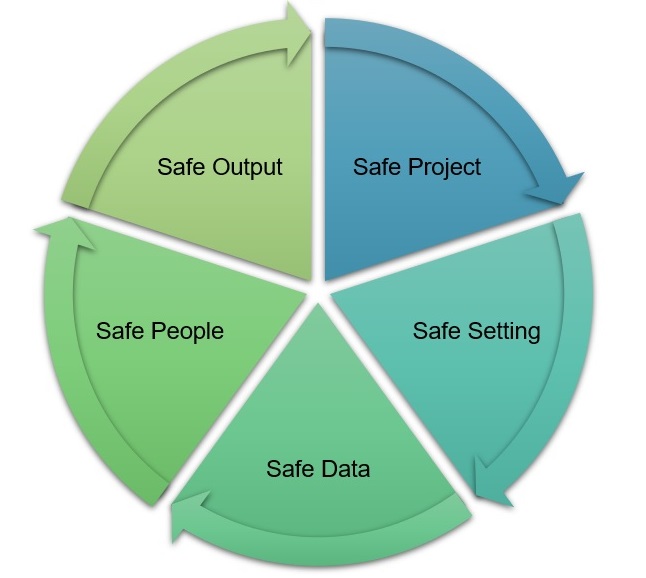What has the need to test, track and monitor during a pandemic shown us about data sharing?
Impelled by tracking and monitoring cases of COVID-19, the State governments of NSW and Victoria are currently sharing sensitive health data for the very first time. While there is no perfect risk-free trust preserving data sharing system, the urgency of responding to COVID-19 has created a baseline for governments to share personal data within and between jurisdictions with a high degree of trust and comfort. And fast!
Similar to the mass workforce shift to working from home, the necessity of mitigating COVID-19 risk has established a precedent that data sharing of highly sensitive personal data can work going forward. Governments are sharing data for the good of the country and through this experience are learning how to share effectively and importantly, building trust while protecting personal identity.
The Five Safes approach
Critical to building trust around data sharing is the ‘Five Safes’ Framework, which is a critical enabling element for States to ensure they are speaking a common language.
Key to this approach is not just assessing the data itself and dealing with sensitive personal information, but assessing who is using the data, where it is being used, and – crucially – what the data will be used for.
The Five Safes model is well tested and widely adopted already including by the Australian Bureau of Statistics, several other Australian government agencies as well as other national statistical organisations such as the Office of National Statistics (UK) and Statistics New Zealand. The ability to effectively manage the sensitive personal information is a new and exciting development, going well beyond the original Five Safes Model.

Image: The Five Safes Framework. For more on this framework, see the Australian Computer Society’s report ‘Privacy in Data Sharing – A Guide for Business and Government‘.
Effective data sharing will be at the heart of the Government’s response to COVID-19. As State governments dig deeper into COVID-19 cases within Council areas to identify clusters, local government will also be required to start sharing some of their data to support these needs. Councils need to be transparent about how they handle sensitive personal information, while contributing effectively to managing a global pandemic.
In many cases, data sharing for local governments will involve setting up systems and ways of managing data that are entirely new and challenge established ways of operating.
Over time, all Councils will need to handle more and more data and some of it will be very personal and sensitive. The right policies and procedures need to be in place to be ready for this challenge. Smart City initiatives were already driving demand for better data sharing; COVID-19 has only increased the urgency of addressing these critical issues.
Why you need Data Sharing Policies
Installing data sharing policies and procedures help manage personal and commercial risk. There is a strong risk aversion not to share anything unless something goes wrong, which is a barrier to realising the potential benefits.
Data sharing enables innovation. If your organisation is serious about catalysing and encouraging innovation, data sharing is an essential building block.
Data-driven decision-making is fast becoming the new normal. While it does take time to set up, once the correct systems are in place open shareable and easy to access data has significant operational benefits and can lead to new insights and outcomes.
Astrolabe has been helping local governments to protect personal information and protect local governments while handling sensitive personal information. While it may sound challenging, learning by doing is the best way to start developing capability, understanding, and trust.
Associate Geof Heydon has been heavily involved in creating the conditions for trust preserving data sharing to be possible. Working under the leadership of Dr Ian Oppermann, the NSW Government’s Chief Data Scientist, Geof has contributed to setting the terms of trust preserving data sharing as part of his involvement with the NSW Data Taskforce, the Australian Computer Society, and the Internet of Things Alliance Australia.
Dr Charlie Gillon is an urban geographer. He came to Astrolabe from a postdoctoral position at the University of Sydney researching local governments’ adoption of smart cities thinking and ideas. Since joining Astrolabe he has been working with local government and State agencies regarding the sourcing and role of data for effective decision making for people and place.
